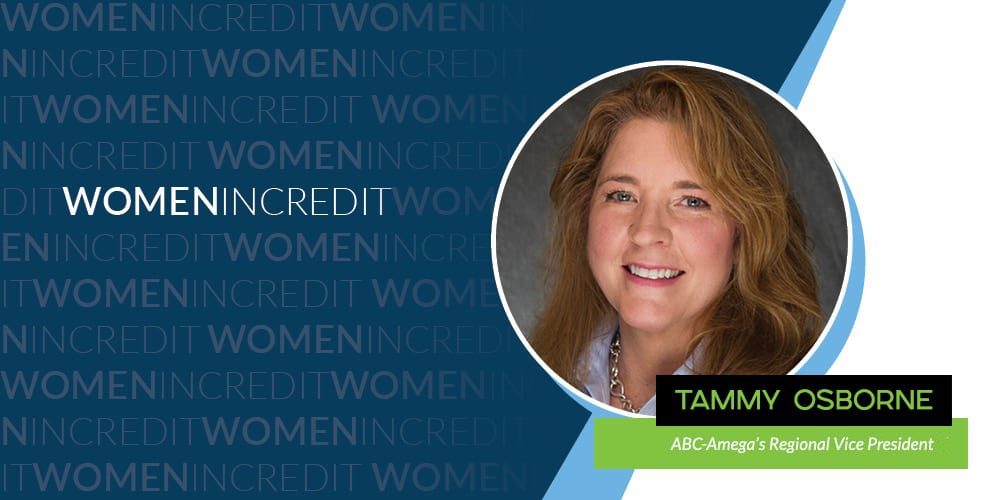Tammy Osborne, ABC-Amega’s Regional Vice President has enjoyed a career in credit and collections for more than twenty years. She has served as the Vice President of National Key Accounts for a national commercial collection agency, as well as owner of her own commercial collection agency, The Anderson Group Worldwide for fourteen years. As an entrepreneur, her experience encompasses all facets of running a business, including time managing client development, client services, and collections for her Louisiana based collections agency. Prior to her career in collections, she worked at a southeastern regional bank based in New Orleans. Tammy earned her Bachelor of Science in Business Management and Marketing from the University of North Carolina of Greensboro.
We recently sat down with Tammy to discuss her career in the credit and collections field.
Q: How did you get into the credit and collections field?
A: I was working at a bank where I felt unchallenged and there was little opportunity to grow. I was speaking to my supervisor about new opportunities and she recommended that I contact her husband who managed a sales team for a collection agency. I had no idea what a collection agency was at the time, but I accepted a sales position and worked there for three years, before deciding to open The Anderson Group.
Q: What challenges, if any, have you faced in this industry?
A: The biggest challenges that I’ve faced have been the challenges of meeting state and banking regulations, which can be burdensome and costly. Time is a precious resource to a small business.
Q: Are there any programs or initiatives dedicated to bringing more women into the field?
A: Industry education is key. I highly recommend someone new to the industry to join industry groups like the National Association of Credit Management (NACM) or Credit Research Foundation (CRF). There are also regional organizations. These groups host webinars, seminars and conferences, which provide invaluable training and networking opportunities, offer credit and collection education and certification designations. Attending these and being open to learning and growing in the field is a great way to remain successful and relevant.
Q: How has the industry changed over the years?
A: Third party collections has transformed from an industry provider handling company’s write offs to one now participating as an extension of the company’s in-house collection team. Years ago, there wasn’t much involvement by the client once accounts were placed for collection. Recovery was unexpected. More companies utilize the agency’s work force to help reduce their headcount and cost of collecting delinquent debts. Therefore, companies are much more involved with all stages of collections, requiring excellent reporting options as well as 24/7 client portal access. This has become the industry standard.
Q: In what ways do you feel the industry could or should improve?
A: Some states are currently very debtor-friendly; therefore, debtor rights versus creditor rights is something that needs more legislation. There are many credit organizations that are lobbying to protect creditors’ rights, and I agree that there is a need for stronger protection for creditors.
Q: What are the biggest challenges you face as a credit and collections professional?
A: My biggest challenge is obtaining an opportunity to present ABC-Amega’s services to the decision maker. Sometimes it proves difficult identifying that person and being allowed the opportunity to assist with their current collection strategy. Frequently, the service of collection support is not a top priority. Delinquent accounts make up a small portion of company’s receivables, so collections may often be a low priority when prioritizing their credit and collection duties. Our services provide additional cash flow and improve client retention, therefore we prove to be a valuable vendor when given the opportunity.
Q: What advice would you give to someone who is thinking about getting into the industry?
A: I would recommend while in school, taking a summer job in collections. Any type of collections: commercial or consumer – with a collection agency or any corporation that has a credit or collections department. This is a great way for people to acquire experience and learn about the industry firsthand.
Did you enjoy this interview? Read about other Women In Credit that we have interviewed!
